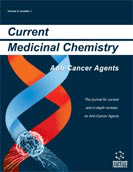Abstract
Contrasting influence exerted by a chronicity of the acute inflammatory reactivity affecting the colorectal mucosa in ulcerative colitis induces a progression in dysplasia as permissive conditioning of the cellular microenvironment. Inducible representative models would allow the emergence of a series of consequential pathways as identifiable profiles that project as carcinogenesis. It is in terms of relatively simple dimensional increase in proliferative cellular activity that epithelial cell dysplasia further promotes malignant transformation in the relative absence of corrective or reparative gene expression systems. The increased potentiality for malignant change is symptomatic of the progressiveness towards definable loss of fidelity of constitutive pathways that both specifically and non-specifically contribute to pathobiology of carcinogenetic pathways as overlapping incomplete profiles of preneoplastic and paraneoplastic integrative systems of reproducibility.
Keywords: proliferation, transformation, preneoplastic, paraneoplastic.






















